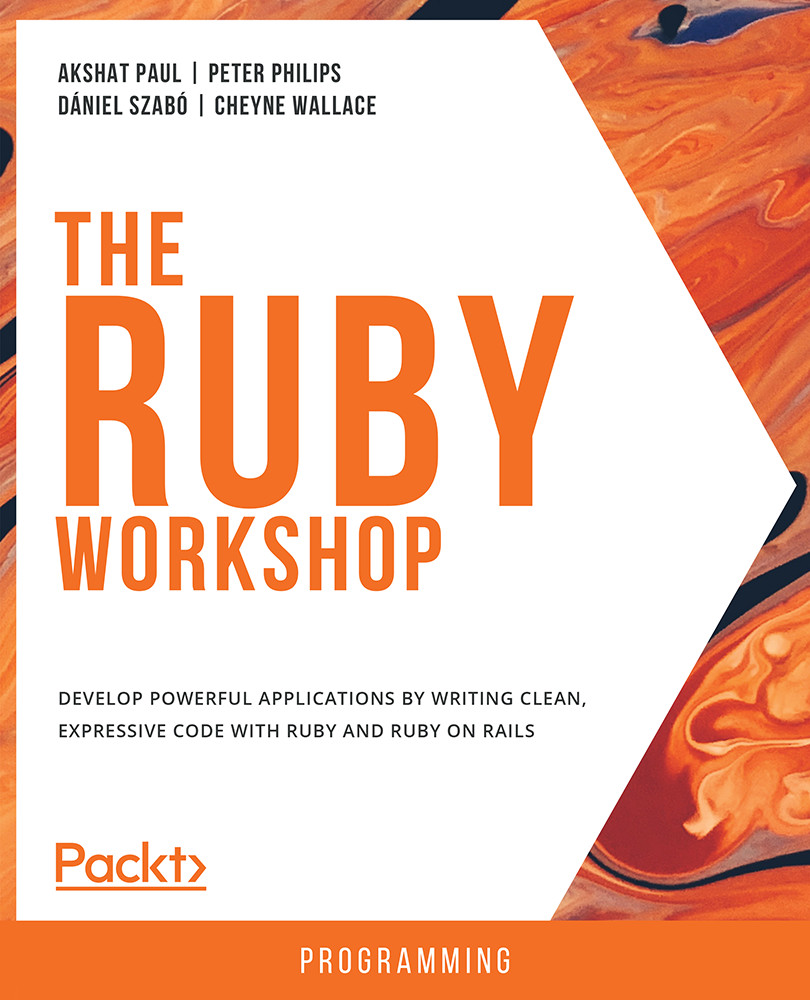-
Book Overview & Buying

-
Table Of Contents

The Ruby Workshop
By :

The Ruby Workshop
By:
Overview of this book
The beauty of Ruby is its readability and expressiveness. Ruby hides away a lot of the complexity of programming, allowing you to work quickly and 'do more' with fewer lines of code. This makes it a great programming language for beginners, but learning any new skill can still be a daunting task. If you want to learn to code using Ruby, but don't know where to start, The Ruby Workshop will help you cut through the noise and make sense of this fun, flexible language.
You'll start by writing and running simple code snippets and Ruby source code files. After learning about strings, numbers, and booleans, you'll see how to store collections of objects with arrays and hashes. You'll then learn how to control the flow of a Ruby program using boolean logic.
The book then delves into OOP and explains inheritance, encapsulation, and polymorphism. Gradually, you'll build your knowledge of advanced concepts by learning how to interact with external APIs, before finally exploring the most popular Ruby framework ? Ruby on Rails ? and using it for web development.
Throughout this book, you'll work on a series of realistic projects, including simple games, a voting application, and an online blog. By the end of this Ruby book, you'll have the knowledge, skills and confidence to creatively tackle your own ambitious projects with Ruby.
Table of Contents (14 chapters)
Preface
 Free Chapter
Free Chapter
1. Writing and Running Ruby Programs
2. Ruby Data Types and Operations
3. Program Flow
Ruby Methods
5. Object-Oriented programming with Ruby
6. Modules and Mixins
7. Introduction to Ruby Gems
8. Debugging with Ruby
9. Ruby Beyond the Basics l
10. Ruby Beyond the Basics ll
11. Introduction to Ruby on Rails l
12. Introduction to Ruby on Rails ll
Appendix
